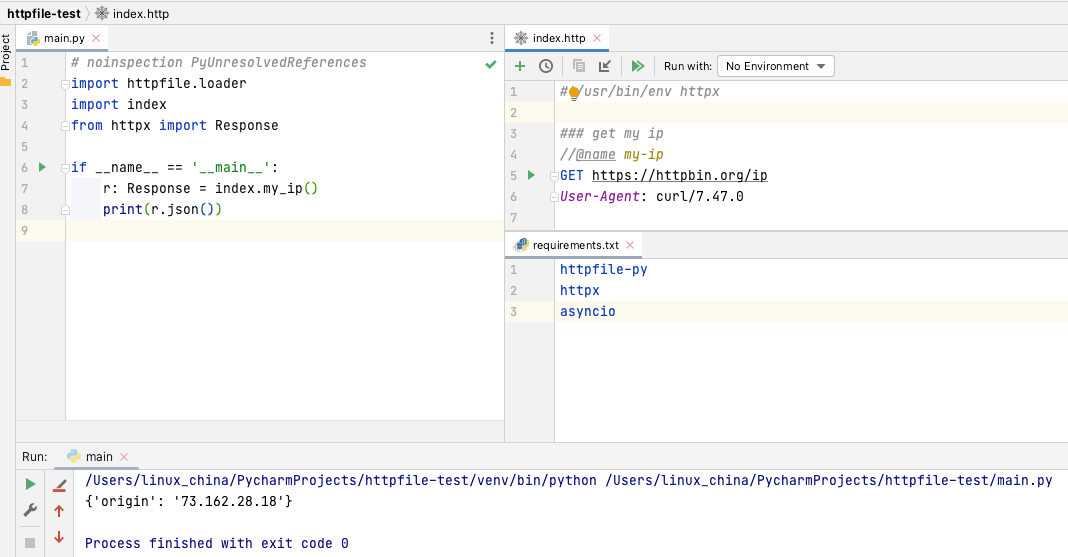在esbuild, Rollup.js, Vite.js, webpack完成对httpfile直接import支持后,httpfile-py也跟着到来啦,你也可以直接在Python代码中直接import http文件,先看代码:
import httpfile.loader
# noinspection PyUnresolvedReferences
import httpbin
from httpx import Response
if __name__ == '__main__':
r: Response = httpbin.my_ip()
print(r.json())
当然你要引入httpfile-py开发包,你可以在requirements.txt直接添加一下httpfle-py即可。
首先就是在要Python文件开头添加import httpfile.loader,这个主要时就是一个Python import的自定义hook,用于支持http文件的import。
接下来就是导入具体的http文件,如import httpbin就表示导入httpbin.http文件,该http文件会包括具体的http请求,代码如下:
### get my ip
//@name my-ip
GET https://httpbin.org/ip
User-Agent: curl/7.47.0
### post test
//@name post-test
POST https://{{host}}/post
User-Agent: curl/7.47.0
Content-Type: application/json
{
"name": "{{nick}}",
"age": 42,
"uuid": "{{$uuid}}",
"demo": "hi` morning"
}
接下来就是调用指定的http请求,如r: Response = httpbin.my_ip(),其中my_ip就是http文件中对应的请求名称,
而r对应的类型为Response,这个其实就是Python httpx开发包的from httpx import Response类型,httpfile-py背后使用httpx作为HTTP Client。
最后就是调用Response提供的方法,如r.json()表示返回json数据类型,然后就可以操作返回的数据了,看一下最终的效果截屏:

考虑到Python的异步Async支持,如果你想调用异步的http请求,只要在请求名称添加上async_前缀,如async_my_ip(),就表示调用异步的http请求,样例代码如下:
import httpfile.loader
# noinspection PyUnresolvedReferences
import index
import asyncio
from httpx import Response
async def my_ip():
r: Response = await index.async_my_ip()
print(r.json())
if __name__ == '__main__':
asyncio.run(my_ip())
注意:不要忘记添加asynciopackage。
最后项目地址: https://github.com/servicex-sh/httpfile-py 欢迎Issue和PR。
